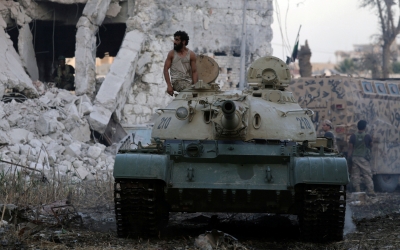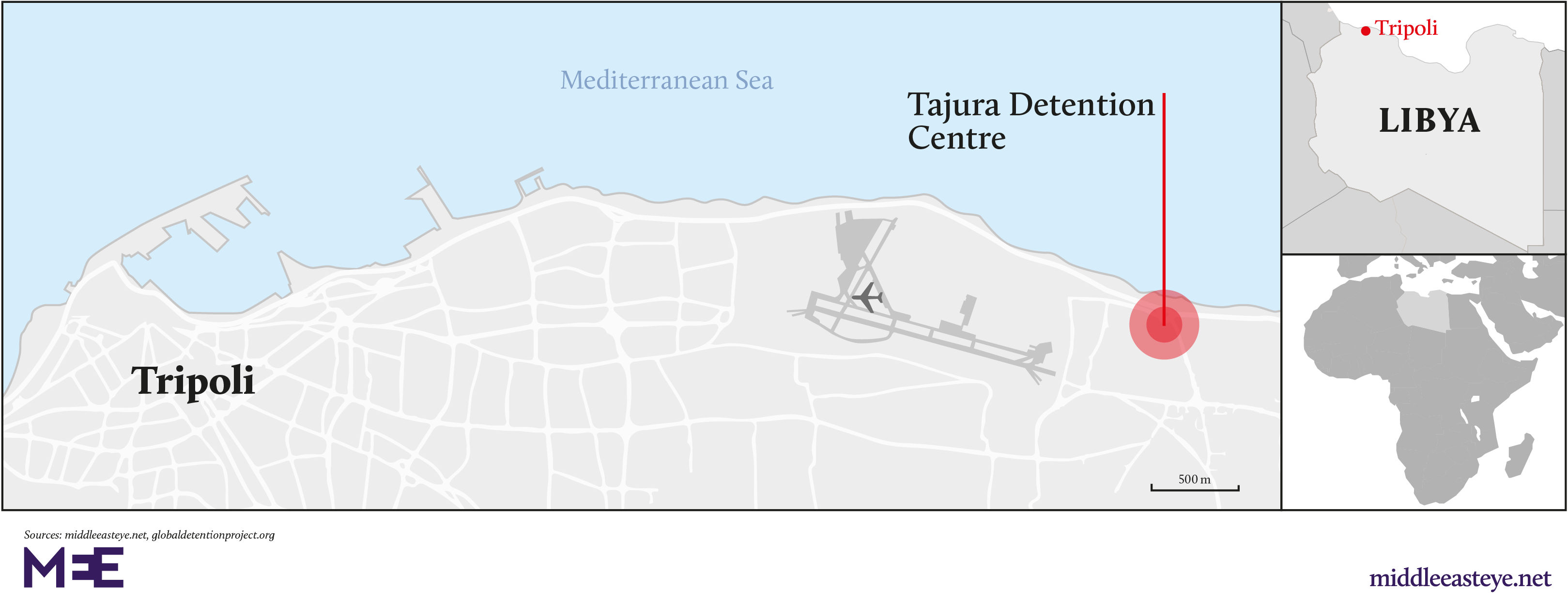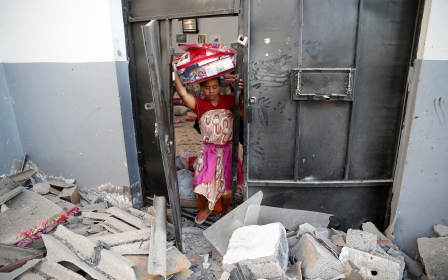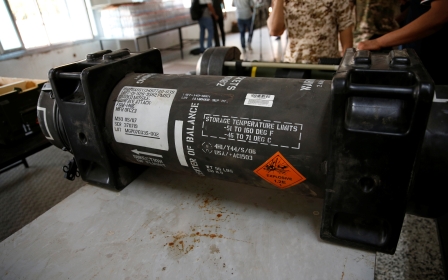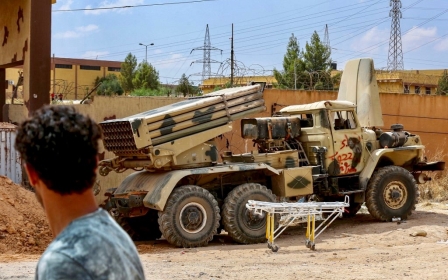Guards reportedly shot at people fleeing Libya detention camp strike: UN
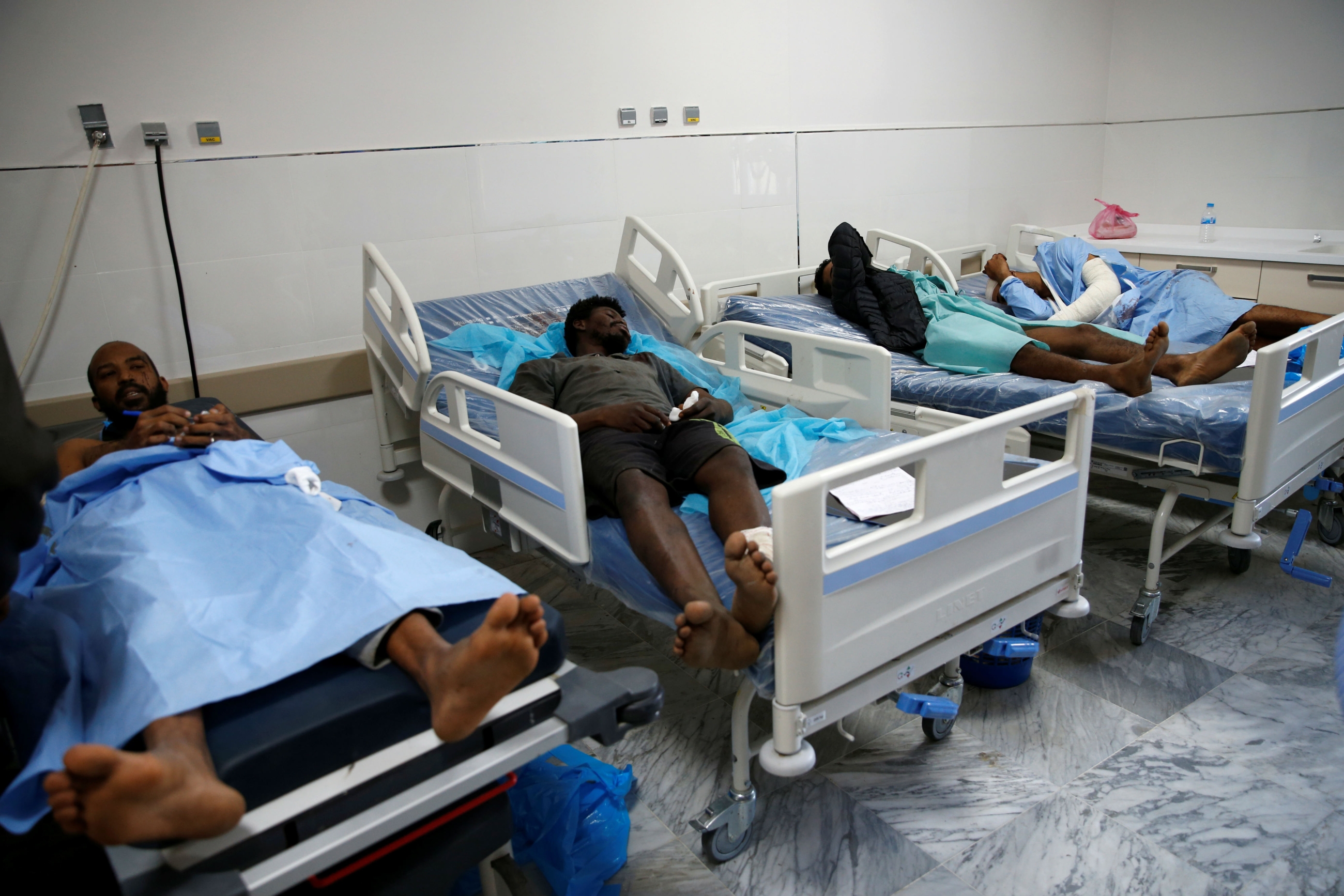
The death toll from an air strike on a migrant detention centre in Libya is expected to rise, officials have said, as the UN claimed that guards shot at people escaping during the raid.
It comes as a senior United Nations diplomat accused European countries of being “blinded" to the plight of people trying to cross the Mediterranean, and compared conditions of migrant detention centres in Libya to the camps of the Khmer Rouge, who carried out the Cambodian genocide.
At least 53 people, including six children, were killed and 130 injured, when an air strike hit a hangar containing around 120 people at the Tajura detention centre in a suburb of Libya’s capital Tripoli late on Tuesday.
Safa Mshehli, a communications officer at the UN's International Organisation for Migration (IOM) office in Libya, told Middle East Eye on Thursday that "due to the severity of the attacks, bodies are still being retrieved" from beneath the rubble and that the final death toll was likely to rise.
A male survivor from the air strike said in video footage seen by Middle East Eye: “The number of dead people may be increased because some of them need a lot of treatment at hospitals outside of Tripoli.”
A Geneva-based IOM spokesperson told MEE that nationals of eight countries had so far been identified among the deceased, without giving further details.
Most of those held in the camps are known to be from African countries. The Libyan health ministry said yesterday that those wounded in the attack included people from Algeria, Morocco, Sudan, Mauritania and Somalia, as well as from Bangladesh.
On Thursday, the UN Office for Coordination of Humanitarian Affairs (OCHA) suggested that many of those held in the camp tried to flee during the raid, only to be attacked by the guards.
"There are reports that following the first impact, some refugees and migrants were fired upon by guards as they tried to escape," OCHA said in a report.
'There are reports that following the first impact, some refugees and migrants were fired upon by guards as they tried to escape'
- United Nations
UNHCR, the United Nations' refugee agency, said yesterday it could not confirm who launched the attack on the centre, which holds some 600 people overall.
But Libya’s Tripoli-based government lay the blame for the attack on forces loyal to Khalifa Haftar, which have denied the claim.
The attack's death toll is the highest reported from air strikes or shelling since eastern forces under Haftar launched a ground and aerial offensive three months ago to take Tripoli, the base of Libya's internationally recognised government in the northwest of the country.
Of the more than 600 people who were in the centre, "300 are still there", and they are receiving humanitarian assistance from the IOM, a spokesperson told AFP.
According to the IOM, of the more than 600 people detained in Tajura, 187 were enrolled in its "voluntary return" programme.
"IOM continues to call for an end to arbitrary detention and reminds all parties that civilians are not a target," the spokesperson said.
OCHA said on Wednesday that four Nigerians were scheduled to be released to their country's embassy the next day, and 31 women and children were set to be sent to a departure facility in Tripoli.
'Just skin and bone'
On Thursday, the UN’s special envoy on migration in the Mediterranean, Vincent Cochetel, accused the EU of “blindness” to the plight of refugees and migrants in Libya and called for a rethink of the policy of returning people intercepted at sea to the war-torn country.
“There is a certain blindness among European countries about the situation of migrants in Libya, which has been deteriorating for months," Cochetel said.
'The recent fighting has created an even worse situation. It cannot be business as usual'
- Vincent Cochetel, UN special envoy
"The recent fighting has created an even worse situation. It cannot be business as usual in terms of this cooperation on returns to Libya.”
Cochetel said that on his last visit to the migrant detention centres he saw people who were “just skin and bone”, and likened the detention centres to concentration camps in Bosnia in the 1990s and those under the Khmer Rouge, which was responsible for the deaths of over one million people in Cambodia in the 1970s.
“The Libyan authorities say they don't have the money to feed people in detention centres - the humanitarian people say 'it's not our responsibility because the people are held arbitrarily and we shouldn't encourage this system by feeding people'. They're both talking at cross-purposes," he said.
Cochetel called on the incoming new EU leadership to pressure all parties in Libya to find an alternative to the current migrant detention set-up.
“We can help the Libyan authorities manage an alternative system of controls which does not amount to arbitrary detention,” he said.
Middle East Eye delivers independent and unrivalled coverage and analysis of the Middle East, North Africa and beyond. To learn more about republishing this content and the associated fees, please fill out this form. More about MEE can be found here.


